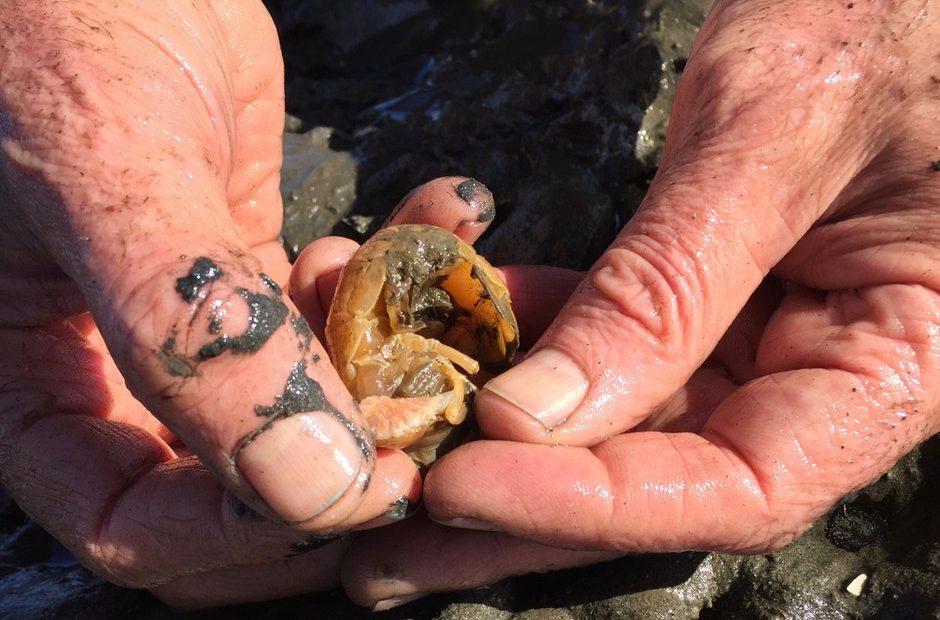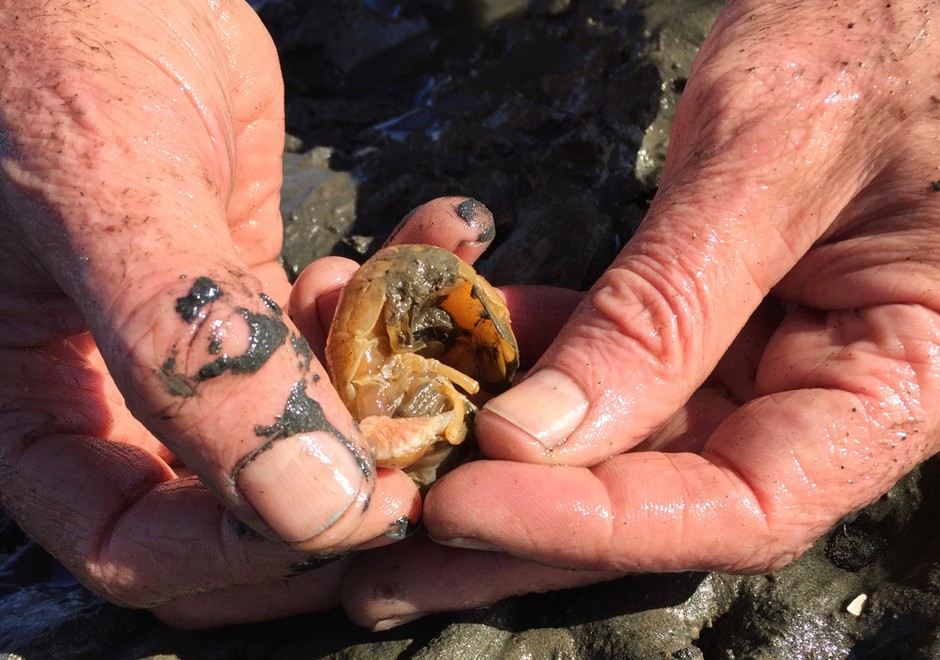
Washington Says No To Poisoning Native Shrimp To Protect Oyster Beds
Washington regulators have tentatively denied a controversial request by shellfish growers to poison burrowing shrimp that damage commercial oyster beds. Growers say controlling the shrimp is vital to the shellfish industry in Willapa Bay and Grays Harbor.
The native shrimp are kind of like finger-sized moles of the ocean. They dig tunnels in the tide flats and anything put on top – whether it be a oyster or a rubber-booted shellfish farmer – just sinks into the mud.
The state agreed a few years back to allow a neonicotinoid pesticide called imidacloprid to be used on two species of burrowing shrimp. Growers with the Willapa/Grays Harbor Oyster Growers Association requested that that permit be withdrawn after consumers voiced safety concerns.
But then members of the association came back with a request to apply the pesticide to about a quarter of the 2000 acres included in the original permit. This is the application that has been tentatively denied, pending a 30-day public comment period.
Officials say in the past three years, more has been learned about the effect of the pesticide on the surrounding environment.
“We determined based on the data that it’s just too risky for us to permit and allow to be used again,” said Jim Pendowski of the Washington Department of Ecology’s Toxics Cleanup Program.
The department says the poison spreads in the water. For every acre treated for shrimp, an estimated five acres is affected. This includes impacts to sediment quality and the organisms that make up the base of the food chain.
In Oregon, work is being done to protect one of the species of native shrimp targeted by the shellfish growers. Scientists are finding the population threatened by a non-native parasite. Washington officials said protection of the native shrimp was not a criteria used in the decision to deny the permit.
Environmental groups called Washington’s tentative denial the “right decision.”
The shellfish growers dispute there is undue risk. In an statement, they called the state’s decision “political.”
Copyright 2018 Earthfix
Related Stories:

Washington, Idaho rank high for public health emergency preparedness
Both states saw steady or increased funding for public health, but Idaho still among lowest for vaccinations.

How does climate affect your life? Tri-Cities survey open now
Cities, towns and counties are starting to plan for a future with climate change. Now, the Tri-Cities area is asking people about regional hazards and historical trends. (Credit: Simon Foot

Immigration enforcement concerns cause mixed attendance trends in North Central WA schools
Eastmont Junior High School students make their way past the 800 wing on the way to their second period in East Wenatchee. (Credit: Jacob Ford / Wenatchee World) Listen (Runtime














